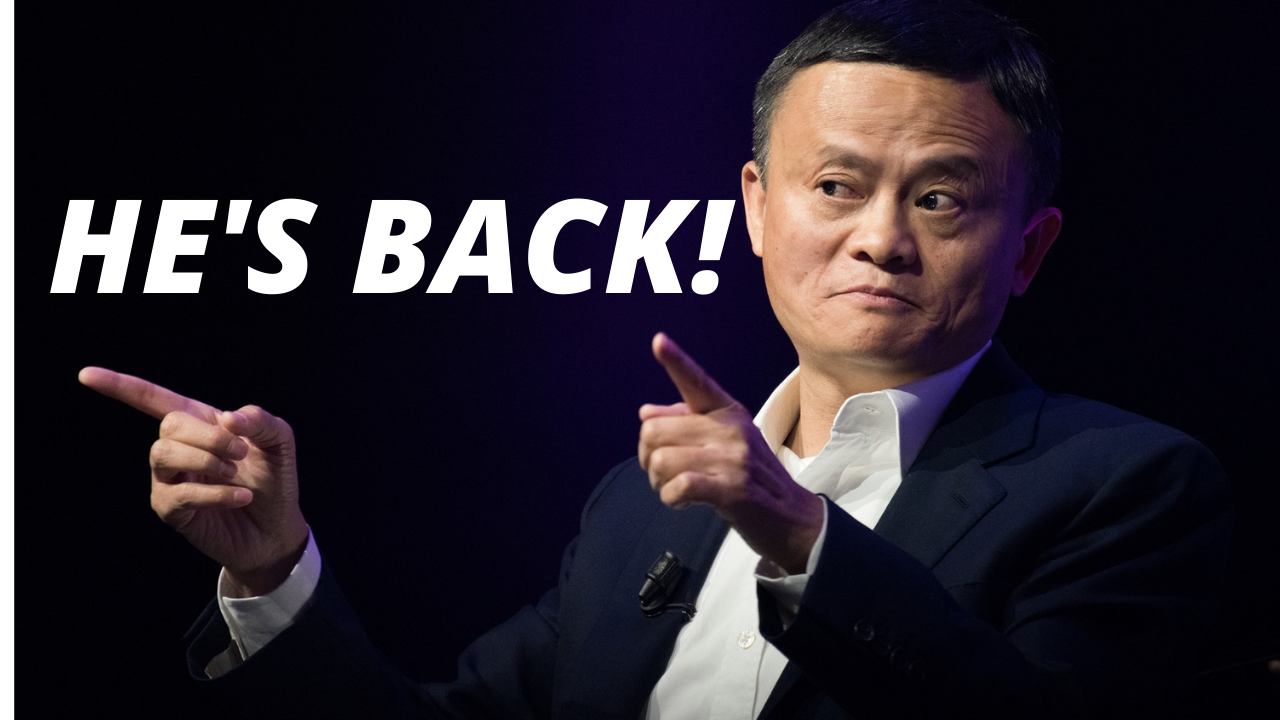He's back! And so is Alibaba

Kauri Asset Management

With its share price falling by as much as 30% at one stage, Alibaba (NYSE: BABA) has faced a difficult time in recent months.
We’ve long been a supporter of the business and a holder of the stock in our flagship Global Growth Portfolio. Amid several headwinds facing the company, we acknowledge that the stock has been facing a more uncertain outlook in the near-term.
Nonetheless, in our view, with some of these risks seen fading or having a negligible impact, the stock has emerged on our radar as one that we are prepared to further back.
What sparked the sell-off?
First weighing on Alibaba’s share price was the abrupt cancellation of the Ant Group IPO, which is Alibaba’s fintech affiliate in which it has a one-third stake.
The IPO was on track to be the world’s largest before the Chinese government mandated a host of requirements as far as capital reserves, governance, regulation and transparency into its dealings. This came after Alibaba co-founder and former executive chairman Jack Ma launched a broadside against his nation’s government.
In unison, these measures make it unlikely that the IPO will proceed in 2021, however, Ant Group has already moved quickly to begin addressing many of the hurdles imposed by Chinese regulators.
With this in mind, we believe the market has priced Alibaba shares based on an outcome where not only does the Ant Group IPO not take place, but where Ant may be at risk of a complete break-up.
We consider this to be a cynical view, meaning potential share price upside if the company navigates the regulatory issues as part of its overhaul. It’s worth noting that competitor JD.com has also been required to undertake a similar exercise, reorganising its financial division into a separate group.
Elsewhere, Alibaba itself has been the subject of an antitrust investigation for its policy dictating that business partners not deal with its competitors. If these relationships are terminated, we see minimal impact.
Comments from Alibaba’s rival Pinduoduo in late 2019 suggested the number of merchants ‘affected’ on its platform by exclusivity arrangements were over 10,000. Even if larger, this is a tiny proportion relative the more than 15 million merchants Alibaba deals with in China.
A clearer US listing future
One of the more positive catalysts in the last week or so for a bottom in the share price of Alibaba is the fact that the company seems to have avoided a US investment ban.
At the turn of the year, Alibaba was said to be among the stocks that would be subject to a ban among US investors, as was the case for various other Chinese businesses. It is widely understood that the Pentagon was making the case to add Alibaba to its investment blacklist, however, the Treasury Department intervened.
With the change of US government administration, we now see this risk and threat as something that we can dismiss. We also anticipate that Joe Biden will adopt a more conciliatory tone with China, which is something that should at least insulate the likes of Alibaba from potential trade-related ‘shock’.
This changing of the guard may also prompt Alibaba to push the pause button on its mooted bond sale in the US, which was expected to have occurred already. The delay may benefit the company by virtue of more favourable terms once clarity prevails around US policy.
The fundamentals are still in place
Much like Amazon, Alibaba is more than just an e-commerce business. Yes, the e-commerce division represents the bulk of its operations but that’s because it is the leading e-commerce group globally, hosting China’s most-visited marketplaces, and two of the world’s top 10 most-visited websites.
It operates popular sites such as Taobao and Alibaba, which generate income from advertising and merchants who pay for services to promote their store and products, plus Tmall, which earns commissions on transactions in addition to deposits and annual fees.
Alibaba maintains a market share of more than 50% in the e-commerce segment in China, even though JD and Pinduoduo have soared in popularity in recent times. The company also has an international e-commerce division offering exposure to countries throughout Southeast Asia, where it has a commanding presence via subsidiaries like Lazada and Tokopedia.
But Alibaba also has three other key divisions including cloud computing, digital media and entertainment, plus strategic investments.
The cloud division provides cloud computing services to online businesses, and in early 2020, was recognised as the market leader in China with over 40% market share. Meanwhile, the digital media and entertainment division is tapping into video streaming, film production, plus movies and events ticketing.
Between FY14 and FY20, Alibaba’s revenue has grown at a CAGR of 46%, up nearly tenfold. In its September quarter results, revenue was up 30% year-on-year.
While the core channel grew by 29%, the importance of the cloud division was on show, with the segment’s revenue soaring 60% over the year as digitisation in China picked up for businesses. This will be the next key growth driver for the company, and in our view, the accelerating digital landscape plays right into Alibaba’s hands.
Summary
A rebounding Chinese economy has played a pivotal role in helping Alibaba continue to prosper amid the pandemic. This is not just attributable to higher consumer spending and purchase frequency, but also the company’s presence as an ‘ecosystem’.
Through multiple touch-points to consumers via its wide-ranging services, Alibaba has created a dedicated ecosystem that is embedded in the day-to-day lives of many. The company retains control of its supply chain, while also leveraging cross-promotion and bundling strategies to spur growth across its divisions. This network builds economies of scale to compete aggressively against rivals.
Ultimately, we see the company as more of a market leader than a monopoly operator. Despite regulatory pressures, the fundamentals of the business are intact, while the risk is offset by the significant upside arising from the cloud sector and new business opportunities internationally.
2 topics

With over 15 years of experience within the financial services industry, Mike possesses an outstanding acumen and extensive insight when it comes to global equity markets and a range of financial services products.
Expertise

With over 15 years of experience within the financial services industry, Mike possesses an outstanding acumen and extensive insight when it comes to global equity markets and a range of financial services products.
